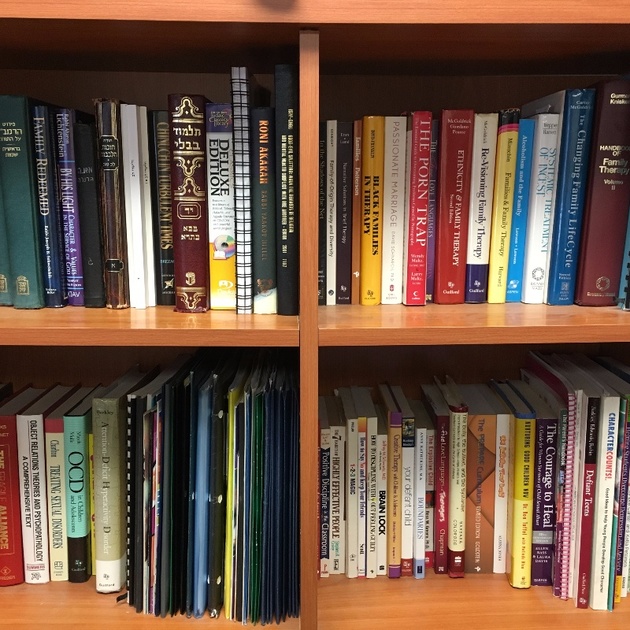
I recently sat with a client and listened to a recording he’d made of himself, years earlier, playing the guitar and singing the song of his favorite artist. My client and I marveled at how meticulously he’d reproduced the riffs, the tones, and the timing of the artist. My client, who is older than I am, is no longer able to play the guitar; his voice is no longer quite able to hit the notes. It was a bittersweet moment. It highlighted the phenomenon of change.
Change is a force that is woven into the fabric of the universe. Unsurprisingly, change is a theme that permeates both the Torah’s narrative and the lived experience of the Jewish people. Change touches on the manner that we travel between dark and light, between bad and good.
In Judaism, darkness typically comes first and is followed by light. The darkness of the Hellenists is dispelled by the light of Chanukah; the darkness of Creation is outdone by the supernal light of Creation.
In a broader sense, difficulty precedes success. The narrative of Pesach tracks our journey from subjugation to redemption; the saga of Dovid HaMelech covers his rise from obscurity (if not ignominy) to glory.
What of light that is followed by darkness? What of prosperity and wholeness that are followed by difficulty and despair? Can the Torah impart to us any wisdom, as we head downhill? An answer to this question is found in the narrative of Pharaoh’s dreams.
Pharaoh dreams of healthy cows being swallowed by weak, thin cows. He dreams of full sheaves being devoured by worn out sheaves. Yoseph’s interpretation correspondingly tracks a period of plenty that is followed (and potentially erased) by a period of famine.
How do we relate to Hashem, how do we operate in His world, when things are expected to get worse, not better?
At the level of action, Yoseph advises to stockpile. Save and store the surplus grain, for when the crops fail us. Similarly, we save, stash, and invest our money, during our productive years, to prepare for retirement. Those of us who are even more forward thinking fashion and shape our legacy, in anticipation of when we are no longer physically present.
Is there, though, a special mindset that underlies those actions? Might there be obstacles to achieving that mindset? Also, what is to be said about resources that simply can not be stockpiled, about youth and vigor that inexorably lead toward infirmity and fatigue?
Ramban points us in the right direction.
He notes the imbalance found in the opening words of Yoseph’s dream interpretation.
The seven wholesome cows represent seven years.
The seven wholesome sheaves represent seven years.
The seven thin, weak cows emerging after them represent seven years.
The seven thin, wind blasted sheaves shall be seven years of famine.
Yoseph is initially vague in his interpretation of Pharaoh’s dreams. The seven good and bad cows mean seven years; the seven good sheaves mean seven years. Only at the end and only with regard to the thin, wind-blasted sheaves does he hint to the nature of the seven years: They will be years of famine. Why doesn’t Yoseph initially make reference to the seven years of plenty?
Ramban answers: The Egyptians, who live along the fertile Nile Valley, are accustomed to years of plenty. It’s not initially newsworthy that there will be seven years of prosperity. What is noteworthy is that seven years of bone crushing famine will follow the seven years of plenty. That’s how Yoseph gets Pharaoh’s attention.
Those of us who are young and healthy often forget what a gift it is to enjoy youth, to enjoy good health. We may be caught up in the challenges of raising a family, of making a living, of getting along with our neighbors, our Shul-mates, and our soul-mates. We may wonder whether we will ever be able to buy a house or whether the house we did buy is adequate for us. How can we enter a head space that prepares us for old age and (at least at some point) faltering health?
Yoseph’s interpretation reminds us: You will (hopefully) age. You may eventually not have the same abilities you once had. You may not be able to assemble and take down the Sukkah by yourself. You may need help getting from point A to point B. You might even feel pain in your joints, as you age.
Far from being depressing, Yoseph’s interpretation orients us to the plenty: We would be wise to approach the gifts we presently have, with the knowledge that they will not, can not last forever.
At this stage, we might ask:
“I can understand how there is a value to stockpiling that which we can save and preserve. What, though, is the value of knowing that our youth, vigor, health, and ability might not always remain with us? If we can’t stockpile those qualities, why even bother contemplating the change, the loss?”
The answer is simple: Even if we are incapable of saving some of our gifts, we can, in the least, savor them.
The opportunity to savor begins the very moment we wake up, when we recite (or, in the least, contemplate reciting) Birchos Hashachar/Morning Blessings . According to theTalmud (Berachos 60b), the blessings are tethered to each stage of waking up.
As we open our eyes, we acknowledge Hashem’s granting us the gift of eyesight.
As we cover ourselves, we acknowledge the gift of clothing.
As we lift ourselves toward an erect position, we acknowledge the gifts of freedom and of muscle strength.
As our feet touch the ground, we acknowledge the gift of terra firma.
As we begin to walk, we acknowledge the gift of mobility, alongside Hashem’s role in guiding our steps.
Birchos Hashachar need not be the end point of enjoying our gifts. They can orient us toward savoring and appreciating every moment of our day, every day of our week, every season of the year.
On a wintry morning, we can step outside and enjoy the bracing outdoor air. We can enjoy the aroma wafting from a nearby coffee shop, the sheer beauty of trees. When we arrive at an indoor destination, we can thrill to the warmth that envelops us. We can enjoy the presence of friends and colleagues, the majesty of a Shul, the sinking of our teeth into a hearty breakfast.
We can appreciate our bodies’ ability to experience sensation and arousal. We can value our brain and bodies’ ability to orient us, to maintain balance. We can celebrate our bodies’ capacity to digest and filter out waste (it’s included in the Berachah of Asher Yatzar.)
Savoring is not limited to the realm of the physical. We can savor a clever thought, a moment of inspiration, a melodious song (think back to my client and his recording). We can appreciate a moment of connection to a friend, to a loved one, to Hashem, We can imbibe the splendor and beauty of a Shabbos table.
Savoring isn’t just for the present. It yields dividends, down the road. If we can appreciate, enjoy, and savor a gift, at the moment it is present, we will have less regrets if and when the gift becomes less accessible.
Moreover, our engaging in the exercise of savoring the present increases the likelihood that we identify the gifts we still have later in life. It increases the likelihood that we discover newer, albeit different gifts… and savor them too.
When we contemplate the dance between darkness and light, we typically think of illumination and redemption. Pharaoh’s dreams teach us that it is likewise helpful to consider the journey from light to darkness, the journey of aging. It is our awareness that few, if any, gifts last forever that spurs us to enjoy the simple gifts, to appreciate them, to savor them.
Photo Credit: Dyu-Ha: Unsplash
 Previous
Previous
